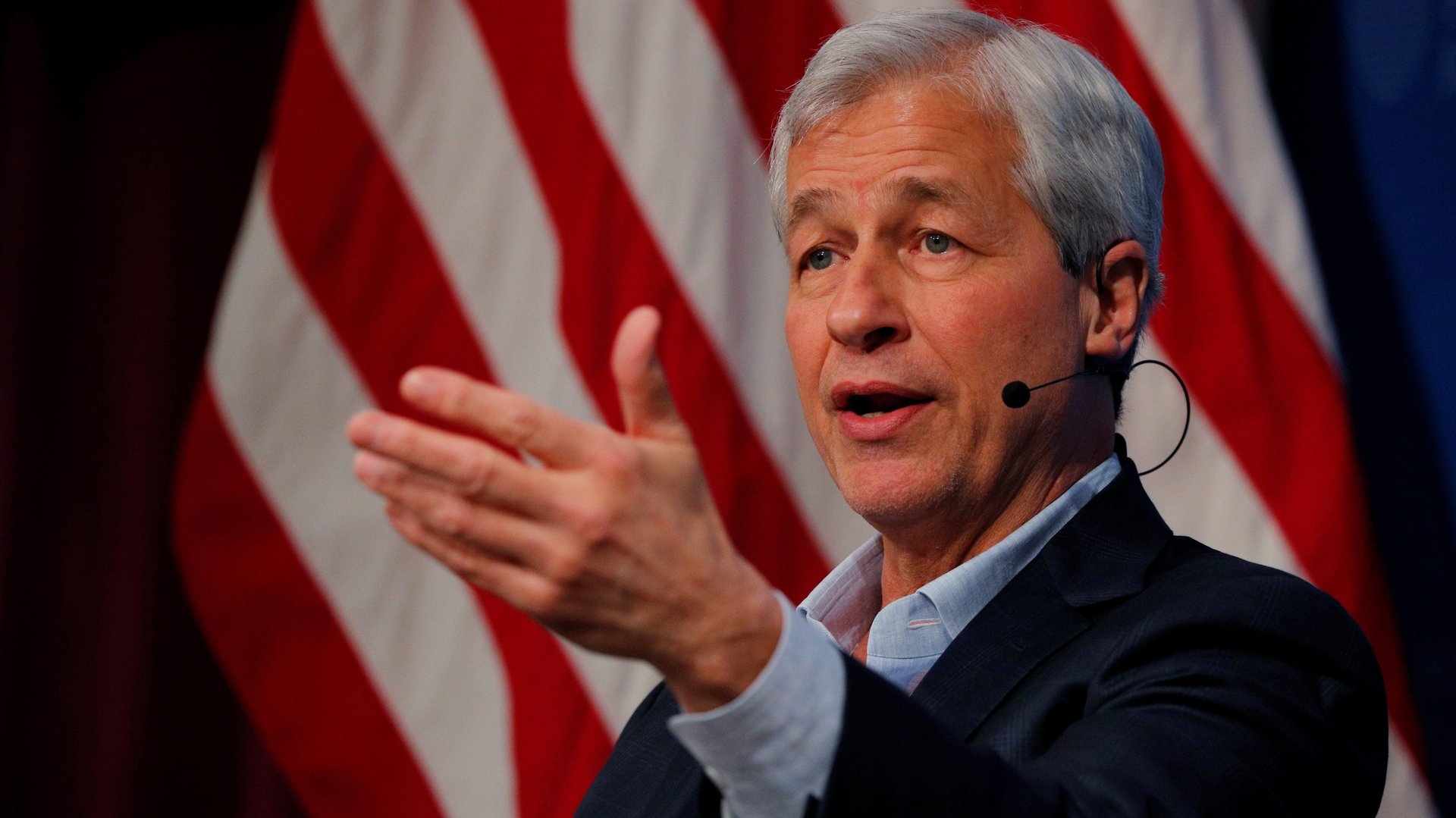Jamie Dimon thinks bitcoin is “worthless” but says clients can do as they please
It’s been a good 12 months for bitcoin prices, but the CEO of America’s largest bank hasn’t changed his opinion of the cryptocurrency.


It’s been a good 12 months for bitcoin prices, but the CEO of America’s largest bank hasn’t changed his opinion of the cryptocurrency.
“I personally think that bitcoin is worthless,” Jamie Dimon, head of JPMorgan Chase, said on Oct. 11 during the Institute of International Finance’s annual membership meeting.
For years, Dimon has been an outspoken critic of digital currency. He called it a “terrible store of value” in 2014. In 2015 and 2016, he said cyber money is “going nowhere” and “will not survive.” The next year, he labeled cryptocurrency “a fraud.” Earlier this month, he told Axios it’s got no “no intrinsic value” and cautioned that “if people are using it for tax avoidance and sex trafficking and ransomware, it’s going to be regulated, whether you like it or not.”
“Clean” access to crypto is still in demand
Much of Wall Street shares Dimon’s loathing of cryptocurrency. So does Berkshire Hathaway CEO Warren Buffett, and its vice chairman, Charlie Munger. Billionaire hedge funder John Paulson doesn’t like it either.
But JPMorgan is still seeing interest among its customers. And the bank will go where the clients are, even if Dimon thinks they’re “stupid” for buying bitcoin.
“Our clients are adults. They disagree. If they want to have access to buy or sell bitcoin, we can’t custody it—but we can give them legitimate, as clean as possible access,” Dimon said at this week’s IIF event.
JPMorgan’s experiments with crypto
Last year, JPMorgan even created its own digital coin, the JPMCoin. The digital token, created to help instantly transfer funds over a private blockchain, is markedly different to the likes of bitcoin and ethereum. It is a stablecoin, pegged 1:1 to the US dollar so it doesn’t embody the highly volatile and unpredictable nature of the more popular cryptocurrencies. And it is only available to a handful of the bank’s institutional clients.
In March, Morgan Stanley became the first big bank in the US to give wealthy clients access to crypto funds. Goldman Sachs followed at its heels. Hundreds of smaller banks, too, are now jumping on the bandwagon.
That includes JPMorgan, which in July started giving wealth-management clients access to crypto funds. The reluctance still shows in the rules of trading in this sector, though. Business Insider reported that JPMorgan’s advisors cannot recommend the products or solicit trades; they can only buy and sell investments in the funds on behalf of clients, at their request.